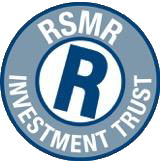Performance, Commentary & Portfolio
ISIN GB0005800072 | SEDOL 0580007
Fund Manager’s Review
2026 has started much like 2025 ended, with President Trump’s unpredictable policy actions impacting sentiment and causing gyrations in financial markets. The US captured Venezuelan President Maduro, as part of a strategy to change Venezuela’s domestic policies and to exert influence over the exploitation of the country’s vast energy reserves. President Trump also threatened to take over Greenland, before reaching an agreement on defence installations there, whilst threatening Canada with 100% tariffs if it makes a trade deal with China. Many Western leaders, including Sir Keir Starmer, pushed back firmly on the Greenland threats. Mark Carney, the Canadian Prime Minister, talked in Davos about the world being “in the midst of a rupture not a transition” [in global integration].
This all put pressure on the US dollar, which fell heavily, and supported a booming gold price, which rallied by over 10% in January alone. Despite the ongoing geopolitical uncertainty, equities made further progress, with the UK stock market up 3%, outperforming the major US indices, even ignoring the weakness in the dollar. There was a notable rotation in the US, with medium sized companies outperforming the top 500, or the technology rich Nasdaq index. But in the UK, the outperformance of midcaps was modest.
The best performing UK sectors were precious metals and mining, supported by gold, silver and copper all rallying sharply. Aerospace & defence and banks also showed further strength, building on last year’s gains. The weakest sectors included software, which has suffered from fears over artificial intelligence (AI) disruption, as well as finance services and industrial services, where the largest companies were impacted by similar fears.
|
"As we passed the end of Merchant’s financial year, the directors raised the third interim dividend, leaving the company on track for a 44th consecutive year of dividend growth" |
Merchants’ performance was ahead of the benchmark, boosted by double digit returns at the resources stocks, Atalaya Mining and Harbour Energy, and fund manager Man Group. Performance also benefitted from not owning AstraZeneca and Relx, which both underperformed. On the other hand, there was some impact from not owning HSBC, Glencore and BAE Systems which outperformed, and Marshalls was weak in a subdued environment for the building industry. Merchants’ Net Asset Value (NAV) total return was 4.39% compared to 3.08% from the benchmark, FTSE All-Share index.
Portfolio activity mainly involved profit taking in strong performers and rotating money into situations where we saw more upside. This included reducing Serco, Atalaya Mining, IG, GSK, Rio Tinto and Barclays, while adding to Michelin, Unilever, Legal & General, Tate & Lyle, DCC, Hikma and Grafton.
As we passed the end of Merchant’s financial year, the directors raised the third interim dividend, leaving the company on track for a 44th consecutive year of dividend growth. Although it has been a very strong year for returns, we still remain excited about the future potential from the portfolio. The stock market remains highly polarised. Whilst sectors like defence and banks have performed well, many of the more cyclical and domestic sectors, like housebuilding and real estate, have been poor performers, leaving valuations of stocks well below our assessment of their intrinsic value. The portfolio is heavily weighted towards medium sized companies where, on average, we see the best potential upside.
Simon Gergel
18 February 2026
This is no recommendation or solicitation to buy or sell any particular security. Any security mentioned above will not necessarily be comprised in the portfolio by the time this document is disclosed or at any other subsequent date.
Key Information |
|
|
Launch Date |
16 February 1889 |
|
AIC Sector |
UK Equity Income |
|
Benchmark |
FTSE All-Share |
|
Annual Management Charge |
0.35% |
|
Performance Fee |
No |
|
Ongoing Charges 1 |
0.56% |
|
Year End |
31 January |
|
Annual Financial Report |
Final published in April, Half-yearly published in September |
|
AGM |
May |
|
Dividend Pay Dates |
February/March, May, August, November |
|
Dividend XD Dates |
January, April, July, October |
1. Source: AIC, as at the Trust’s Financial Year End (31.01.2023). Ongoing Charges (previously Total Expense Ratios) are published annually to show operational expenses, which include the annual management fee, incurred in the running of the company but excluding financing costs.
Registrations |
|
|
Company No. |
00028276 |
|
FATCA GIIN No. |
ZHLNUL.99999.SL.826 |
Codes |
|
|
RIC |
MRCH.L |
|
SEDOL |
0580007 |
|
ISIN |
GB0005800072 |
Awards & Ratings

Shares Awards 2021 - Best Investment Trust for Income: The Merchants Trust was recognised in 2021 by the readers of shares magazine. The award is voted for by readers and is not influenced by an industry panel, providing a validation of Merchants' investment strategy from individual investors in the trust.

RSMR Rating: The Merchants Trust has been awarded RSMR’s ‘R’ rating, widely recognised as a mark of quality for funds, ranges and investment trusts that receive this seal of approval. The RSMR research process results in a list of investment trusts which are the trusts that RSMR feel have a robust, repeatable process and the ability to deliver strong performance in the future.

Association of Investment Companies (AIC) Shareholder Communication Awards 2021: The Merchants Trust won the award for ‘Best Report and Accounts – Generalist’. The judges praised the winning entry for the quality of its case studies and investment report, its use of language that was easy to understand, and the level of detail provided on the portfolio.
The RSMR rating is designed for use by professional advisers and intermediaries as part of their advice process. This rating is not a recommendation to buy. If you need further information or are in doubt then you should consult a professional adviser.
A ranking, a rating or an award provides no indicator of future performance and is not constant over time.



